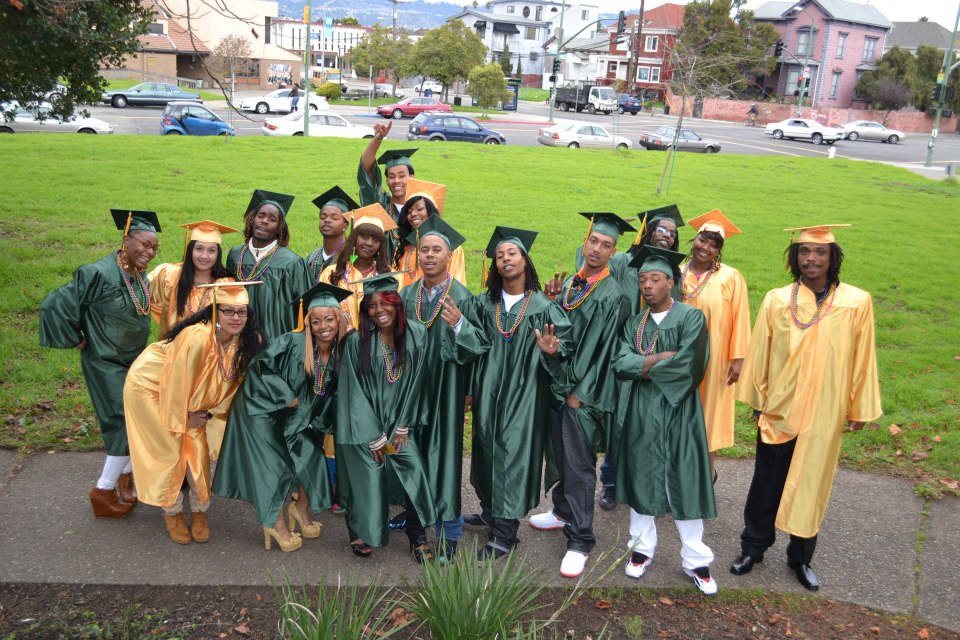June 5, 2014
It’s graduation season! High school seniors across the country can celebrate the completion of 12 years of essays, tests and projects. They can rejoice in knowing that, with a diploma in hand, their futures are bright. After all, every graduate is one step closer to a college education, a good job and independence.
Unfortunately, not every student makes it to graduation. Though the dropout rate has declined over the past decade, it still hovers around seven percent. For minority populations, the situation is even bleaker; nearly one in two minority students does not graduate with his or her classmates. Lacking a high school diploma or GED means fewer options in the workforce and limited opportunities to earn degrees or credentials that could lead to higher-paying jobs. The sad truth is that dropping out of high school can mean a lifetime of struggling to make ends meet. Even sadder is the fact that many students who leave school don’t leave because they’re “lazy” or caught up in the wrong crowd; it’s because they feel like they don’t have any options.

Civicorps – Oakland, CA
Out of the approximately 7,000 students who dropout every school day, there are many young parents who need to work to support their families. There are teenagers who have no homes and no support network. There are many students who are new to this country and don’t receive the ESL services they need, as well as students who could benefit from one-on-one attention, but get lost in the shuffle. In other words, there are hundreds of thousands of very smart, capable young adults who choose or need to leave high school. These individuals are full of potential – they just need to have access to the right opportunities. 
Corps offer an alternative. Young people who enter a Corps without a high school diploma or GED have the chance to go to school while also developing tangible job skills. Corpsmembers attend class for part of the day, or part of the week, and then go out into the community to gain hands-on work experience by participating in service projects. For their service, Corpsmembers receive a stipend and often earn scholarship money. Essentially, the Corps model allows young people to make money while furthering their education.

Conservation Corps North Bay – Marin County, CA
Corps generally offer smaller class sizes and more personal attention. Most programs also have onsite counseling staff or relationships with local organizations that can help students with everything from transportation costs to mental health services and childcare. Not to mention, there are dedicated staff members at many Corps programs who were once Corpsmembers themselves; they understand and can accommodate the kinds of issues their students deal with outside the classroom.
Last year, out of nearly 26,000 young people enrolled in programs of The Corps Network, nearly 60 percent came from families below the poverty line and some 30 percent were not in school and lacked a high school diploma or GED upon enrollment. These young people bring different, often additional, challenges than your average high school student, but Corps offer ways to ways to work with these challenges. The facts speak for themselves: in 2013, of the 10,500 young people who entered Corps without a high school credential, nearly 60 percent received a high school credential during their Corps enrollment, or enrolled in another diploma or GED program. Additionally, Corpsmembers earned nearly 12,600 professional certifications or credentials.
Education doesn’t end after a Corpsmember receives his or her diploma. Many Corps provide comprehensive college preparation and support students throughout their transition to postsecondary programs. Some programs have relationships with local community colleges, allowing students to pursue a postsecondary degree while continuing to serve at the Corps. As said by Candace Washington, a graduate of Civicorps in Oakland, CA who is currently enrolled in college, “I started the Corps without a diploma. I believe that just being able to be a part of Civicorps has made me stronger, helped me better serve my community, and has opened my eyes to all possibilities. My journey does not end here; this is just my stepping stone…I plan on graduating five years from now with my Masters in Psychology and starting my career. I am going to jump over any obstacles that may come my way.”
So during this graduation season, let’s not think about the dropout rate; let’s think about the graduation rate. Let’s focus on the positive and think about ways we can get more young people in cap and gown. Corps are one way to do that.





































































